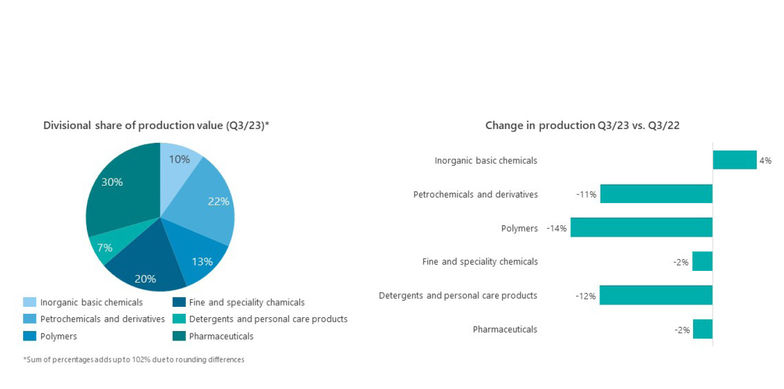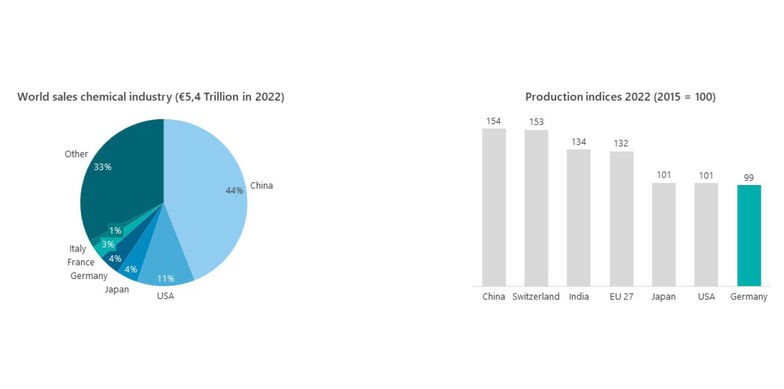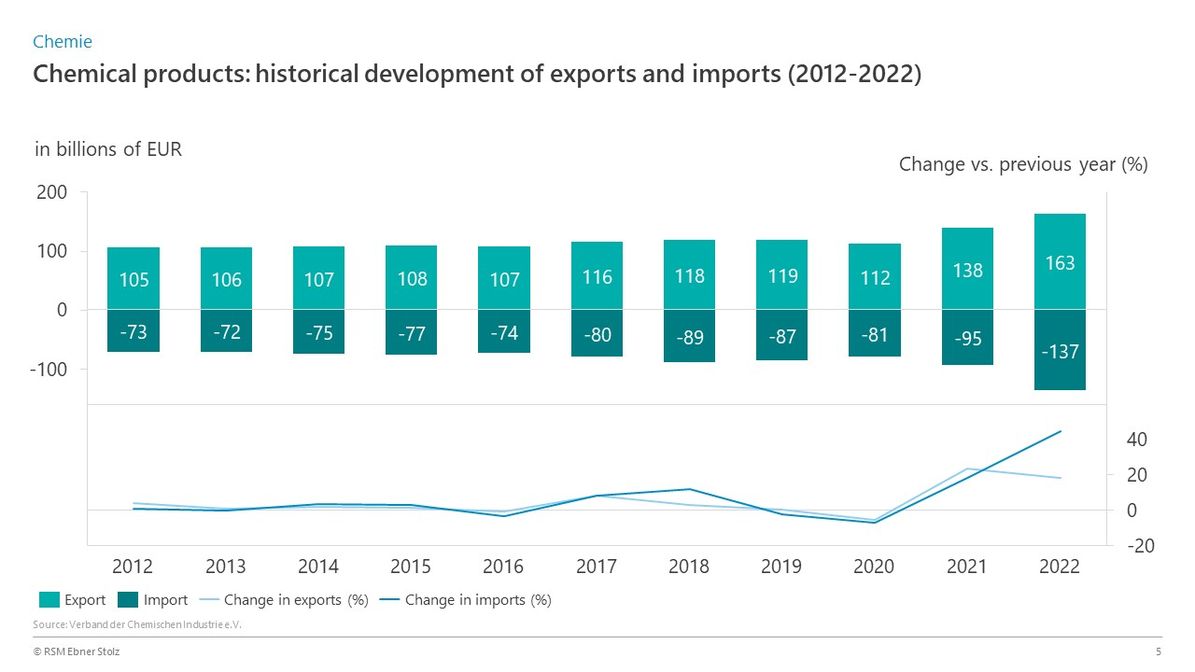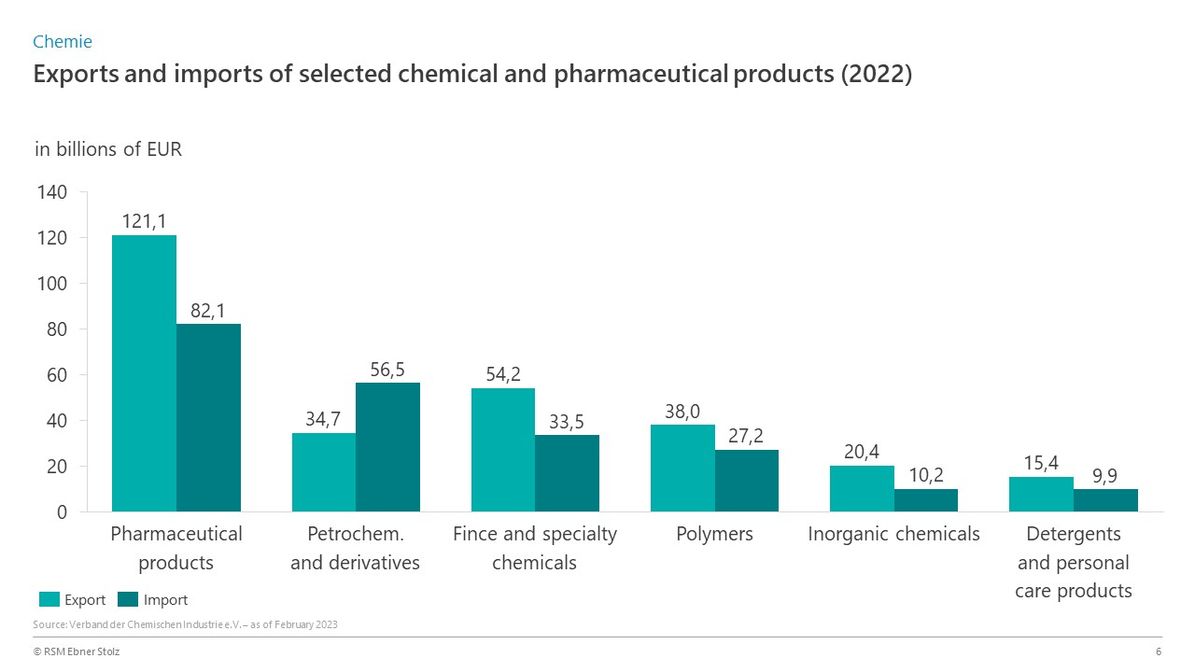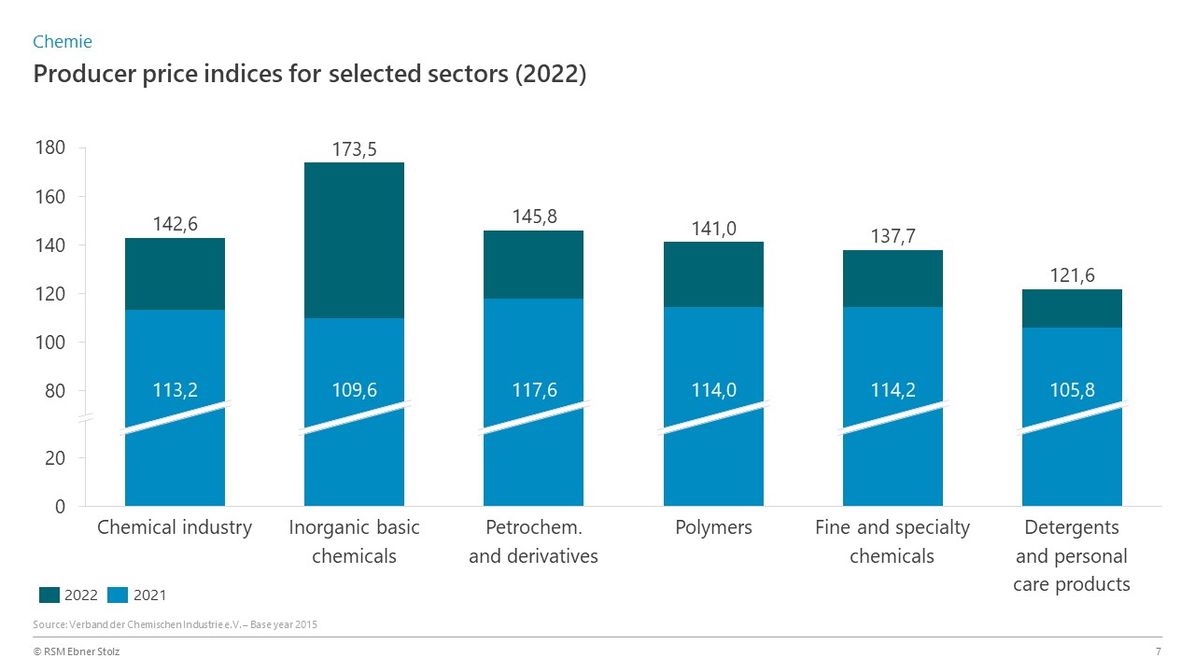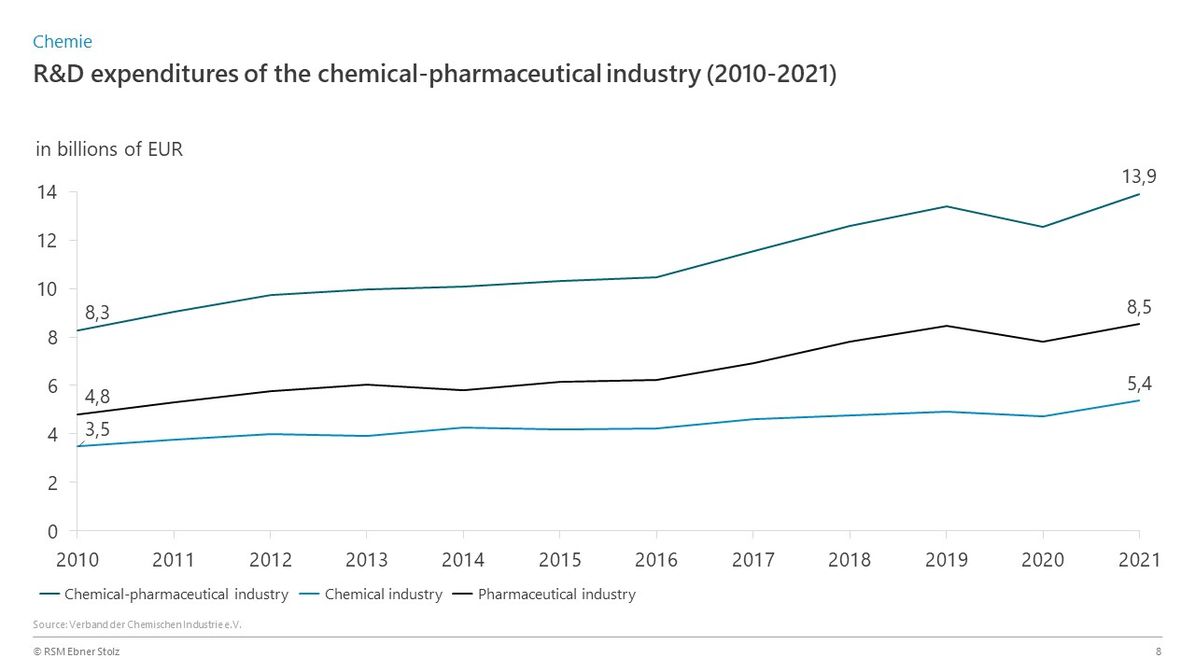Distribution and change in relative shares in German chemical production
Companies in the chemical industry operate in a demanding environment, characterized by high globalization on both the purchasing and sales sides and constantly increasing regulatory requirements. They face considerable challenges that require perpetual adaptation to ever changing conditions.
On the one hand, German chemical companies are exposed to growing competitive pressure from international competitors, both internationally and in their home market. On the other hand, like all market players, they must constantly review and adapt their products and services, as well as their production processes and supply chains, in terms of sustainability, efficiency, reliability and recyclability. To maintain their own market position, strategies such as launching new and innovative products, increasing resource efficiency, cutting costs and opening up new international markets are crucial. At the same time, a large number of national and European legal regulations must be taken into account, for example with regard to (product) approvals, taxes, commercial permits and public subsidies.
German chemical companies must also not miss the boat on an international level and must continue to develop. Important trends such as the digitalization of supply chain planning, solving the dependence on fossil fuels and the general increase in energy costs must be taken into account when developing a strategy in order to remain competitive for the future.
Ebner Stolz has a highly qualified team of experts who continuously engage with and advise companies in the chemical industry. Our consultants specialize in the areas of performance management, financial management, tax and legal advice, and also have an in-depth understanding of the industry, the market and the products.
Thanks to this broad expertise, we can offer you a comprehensive consulting portfolio for the chemical industry from a single source to help you successfully master the challenges of the industry.





